implementing the Paris Agreement

Commentaries and publications
This paper assesses the effectiveness and interactions of different policies aimed at reducing carbon dioxide emissions, using a macro-financial framework. The research aims to provide central banks and similar institutions with the tools to contribute to climate change mitigation and demonstrates the importance of including these institutions in the push to reduce global emission levels. Read more

Transcript of the keynote speech delivered by Nick Robins on 20 April 2020 as part of Earth Day Week, in which he suggests five priorities for how we should reset sustainable finance in the decade to 2030. Read more

How much progress are companies really making on climate change and to what extent are they on course to deliver the goals of the Paris Agreement on climate change? This commentary highlights the main findings from the new report from the investor-backed Transition Pathway Initiative. Read more

Following reform of the EU emissions trading system (ETS) in 2018 further regulatory amendments are on the horizon as part of the 2021 review. This paper evaluates and compares the impacts of realistic regulatory changes within the ETS to inform the 2021 review and raise ambition, examining two main policy levers: the linear reduction factor and the market stability reserve. Read more

As the financial system gears up for the COP26 UN climate summit in November, leaders of financial institutions will need to know the answer to two questions: what is your temperature score and how will you bring it down to 1.5°C as soon as possible? Nick Robins looks at the progress being made. Read more

This paper provides new evidence that financial markets value firms’ expansion into production of low carbon goods and services, but they remain cautious on divesting from the most polluting industries. Read more

In raising ambition and accelerating action on climate change, there is one sector that can have an outsized impact on changing the trajectory: the finance sector. In this post for the Sustainable Finance Leadership Series, Patrick Curran, Nicholas Stern and Nick Robins set out why and how the finance sector should be encouraged to ramp up its focus on climate action. Read more

New research by Giovanni Marin and Francesco Vona finds that increases in energy prices substantially reduce energy consumption and carbon... Read more

In evaluating the responses of French manufacturing firms to large increases in energy prices, which the authors use as a proxy for stringent environmental policy, they find that costs in terms of job losses and competitiveness are smaller by an order of magnitude than the benefits in terms of reducing carbon dioxide emissions. Read more

We formally study the determinants, magnitude and distribution of efficiency gains generated in multilateral linkages between permit markets. We provide... Read more

The Climate Action Summit, hosted on 23 September at the headquarters of the United Nations in New York, succeeded in... Read more
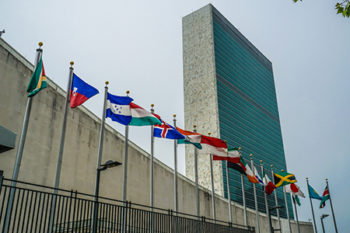
The authors of this paper show that while a convergence towards relatively high carbon prices is more than welcome from a climate perspective, central banks and other agencies responsible for financial stability may need to play close attention to such development. Read more

Climate policy has taken a particular hit during a 10-year period of political corruption and uncertainty in South Africa but now the country has a chance to get back on track, say the authors of this commentary. Read more
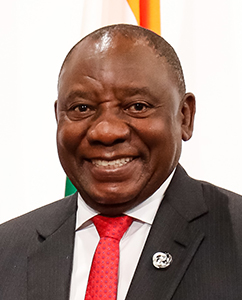
This report and accompanying 8-page brief examine some of the emerging challenges in climate governance in South Africa and potential solutions. The lessons identified are also relevant for other developing economies. Read more

Bob Ward sets out five urgent actions for the UK Government in response to the Committee on Climate Change's new report on achieving net-zero emissions Read more

As recognition grows rapidly among central banks of the need for routine consideration of climate change risks, robust research is required to guide and underpin their actions. Nick Robins and Matthias Täger introduce a new global research network designed to build these foundations. Read more

This paper develops a novel theoretical tool with which a jurisdiction can evaluate the economic gains it can expect to obtain by linking its emissions trading system (ETS) to one, two or many ETSs at the same time, and proposes a reason why the global market remains a distant dream. Read more

The Paris Agreement on climate change is not just an environmental treaty but offers the basis for a new and inclusive model of development. France is committed to making finance a driving force behind this transition, explains Brune Poirson in this post for the Sustainable Finance Leadership Series. Read more

The authors of this comment respond to a recent argument put forward by Lemoine and Rudik (2017), that it is efficient to delay reducing carbon emissions because there is substantial inertia in the climate system. Mattauch et al. show that there is no such inertia, which means there is no lag between carbon emissions and warming. Read more

Identifying progress within the annual round of international climate negotiations can be a challenging business. The sessions of the Conference... Read more
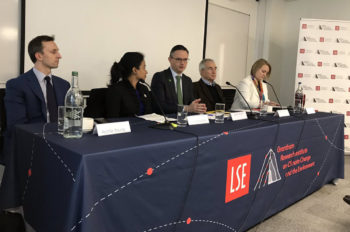
Monday 3 December 2018 was the date when the ‘just transition’ emerged onto the global policy scene as a geopolitical... Read more
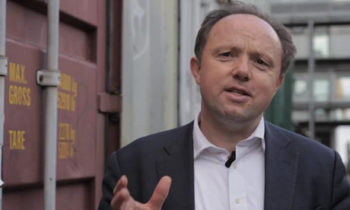
A ‘just transition’ for workers and communities as the world’s economy responds to climate change was included within the Paris Agreement. This guide sets out how investors can address the social dimension of climate change and pursue the goal of a just transition as part of their core operating practices. Read more
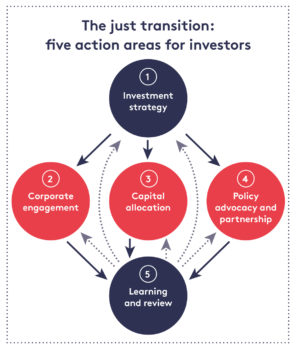
As the implementation guidelines to the Paris Agreement are negotiated at COP24, this commentary asks whether and to what extent they will include human rights language, and reviews examples from around the world of how human rights issues are gaining more prominence in relation to climate action. Read more

This special report for the LSE Growth Commission shows why it is sensible for environmental sustainability to be at the heart of the UK’s growth strategy and how this can be achieved, setting out recommendations for government across the areas of innovation, infrastructure, skills and cities. Read more

This book provides an authoritative insight on the Loss and Damage discourse by highlighting state-of-the-art research and policy linked to... Read more

In 2012 Mexico became the first large oil-producing emerging economy to adopt climate legislation. This study assesses the impact of the General Law on Climate Change to date and draws lessons learnt for Mexico and other countries that are currently developing climate change legislation. Read more
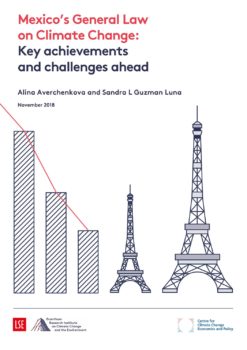
This commentary reviews how both the insurance sector and its partners could build on the growing momentum and overcome the continuing barriers to deep implementation of sustainable insurance practices over the coming decade. Read more

To feed into the Talanoa Dialogue, the Grantham Research Institute and the World Resources Institute have been taking stock of the quantified climate targets set by different Parties to the Paris Agreement. Read more

The quantified climate change targets in countries’ Nationally Determined Contributions (NDCs) to the Paris Agreement and those in national laws and policies are compared in this brief, a submission to the Talanoa Dialogue. Read more
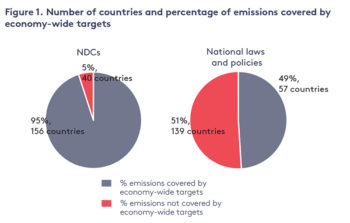
Patrick Curran reflects on a nine-year discussion about carbon pricing and carbon tax in South Africa as the country's government postpones the tax's implementation once again. Read more
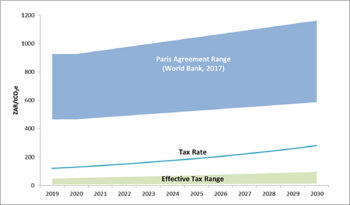
The policy brief outlines the key governance challenges Tanzania faces in implementing its climate policies, describes the drivers of and barriers to climate-relevant policy processes, and concludes with policy recommendations. Read more

The Government is seeking advice on how the UK can achieve 'net-zero' emissions from across the economy. But why is net-zero on the table and what would it take to achieve it? Read more

10 years on from its establishment, this report assesses the role of the independent Committee on Climate Change (CCC) in shaping UK climate policy, drawing out lessons for international and domestic policymakers. Read more

The Paris Agreement does not just commit countries to cut emissions. All countries also need to put in place a policy framework for climate-consistent finance. Nick Robins argues that the UK could take a leadership position by setting out how this complex task could be achieved. Read more

My argument is simple. The transition to the zero-carbon economy is the inclusive growth story of the 21st century. Let... Read more
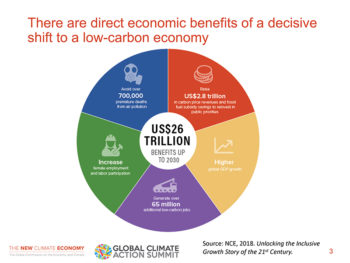
Coherent, cross-sectoral approaches to policy development are essential to meeting the Paris Agreement on climate change and the Sustainable Development Goals. Drawing on research from southern Africa, this brief makes recommendations for improving coherence, which is currently partial to weak across the region. Read more

A new article in ‘The Australian’ exposes once again the hypocrisy of the newspaper’s editor, John Lehmann, and the shameless... Read more
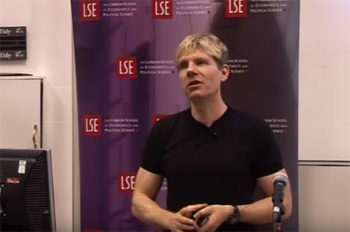
This Policy Insight is the text to accompany a presentation delivered by Lord Stern at the Vatican on 5 July 2018 at the International Conference on the Third Anniversary of Laudato Si’: Saving our Common Home and the Future of Life on Earth. Read more

The world has built a remarkable global agenda. Nicholas Stern explains the urgency of rising collectively to the challenges and describes how the necessary political will can be built to deliver the strong decisions we need, at sufficient pace. Read more

This report seeks to draw upon the composite lessons learned at domestic and subnational levels and aims to respond to... Read more

This brief summarises the most recent trends in climate change litigation and legislation, now with global coverage. Read more
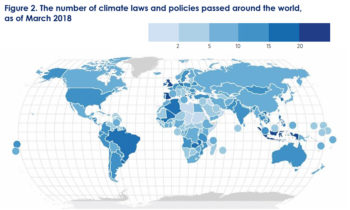
This briefing note submits learning to the Talanoa Dialogue process from PRISE on supporting private adaptation to climate change by households and businesses in semi-arid lands. Read more

This submission to the Talanoa Dialogue covers themes of climate legislation, institutions and governance, and the credibility of climate change commitments. Read more

This policy brief is a condensed version of our report on the Climate Change Act, summarising lessons for the UK and other countries, on how climate change legislation is best structured to be effective. Read more

This report summarises lessons from the Climate Change Act, for the UK and other countries, on how climate change legislation is best structured to be effective. Read more

President Trump again demonstrated that he is a major source of fake news about climate change. In an interview with Piers Morgan President Trump's answers revealed the very deep level of his ignorance. Read more
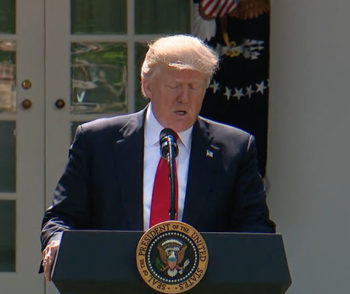
To achieve the goals of the Paris Agreement, the use of fossil fuels must peak and then rapidly decline. This research investigates the impact of climate change policy on capital invested in fossil fuel power plants, especially coal - so-called ‘dirty’ assets. Read more

The authors of this paper have built a model of economically-efficient carbon dioxide emissions, which provides solutions for economically optimal peak warming of the planet, optimal emissions along the transition to peak warming, and optimal carbon prices, including under a temperature constraint consistent with the Paris Agreement. Read more

A new report by the Grantham Research Institute on Climate Change helps to dispel some of the gloomy arithmetic of climate change by providing evidence on the scale and range of ancillary benefits that derive from reducing emissions of CO2 and other greenhouse gases. Read more

A previous draft of this report was published as a background paper submission to the China Development Forum 2017. An... Read more

Headline issue China is taking an active leadership role in a new global agenda that has sustainable infrastructure at its... Read more

How damaging is Trump’s move to the Paris Agreement and international climate policy? And what can be done to contain the ‘Trump effect’? Read more
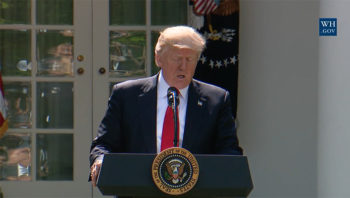
Abstract The recent global climate change agreement in Paris leaves a wide gap between pledged and requisite emissions reductions in keeping... Read more

Abstract The bottom-up approach promoted through the Paris Agreement and signed in 2016 requires the definition of accurate and realistic... Read more

A diverse range of approaches, including contributions based on national interest and local benefits of climate action, is needed to meet the goals of the Paris Agreement. Now, research considers how equitable approaches may play a role. Read more

Climate actions by non-state and subnational actors are an important complement to the multilateral climate regime and the associated contributions... Read more

This study uses the ‘Paris consistency monitor’ to assess whether the past and present action by G20 countries on climate mitigation is consistent with meeting the key requirements of the Paris Agreement. Read more

This report assesses the domestic constraints and opportunities for the development of climate policy in China, the EU and the US. Read more

Putting the SDGs and Paris Agreement together, the agreements of 2015 have given us, for the first time, a global agenda for sustainable development applying to all countries. This paper sets out the implications of this agenda, and climate change in particular, for development economics and development policy. Read more

The announcement that the US and China have both ratified the Paris Agreement is likely to make it more difficult for Donald Trump, if he becomes President, to renege on the international commitment on climate change made by Barack Obama’s administration. Read more

Abstract This article reviews and assesses the outcome of the 21st Conference of the Parties (COP-21) to the United Nations... Read more

The recent global climate change agreement in Paris leaves a wide gap between pledged and requisite emissions reductions in keeping... Read more

In this talk, Dimitri Zenghelis presents the importance of the Paris accord in which it was agreed to limit the... Read more

A response to ‘Impact of Current Climate Proposals’ Bjorn Lomborg Global Policy, Volume 7, Issue 1, pages 125–126, February 2016 Read more

The deal reached in Paris at the end of last year was a remarkable outcome. This is not because of... Read more

This report provides the results of an analysis of “intended nationally determined contributions”, or INDCs, that were submitted by countries ahead of the Paris Agreement on climate change. Read more

Nicholas Stern reflects on how the annual meeting of the World Economic Forum in Davos represented the first step on the way to implementing the Paris Agreement. Read more

Visiting researcher, Michael Jacobs, on why the Paris Agreement provides a strong basis for future global action on climate change. Read more
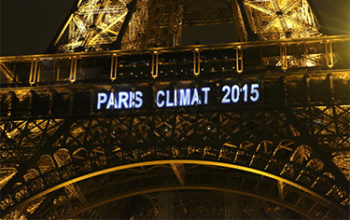
The UK should have a safer future as a result of the Paris Agreement that was adopted by more than... Read more

After the successful conclusion of the 21st Conference of the Party (COP21), attention is now likely to focus on what... Read more

As the United Nations climate summit in Paris draws to a close, we suggest that cities should be a focus... Read more

This paper claims there is a fundamental methodological flaw in a recent paper by Bjorn Lomborg which seeks to investigate the temperature reduction impact of major climate policy proposals. Read more

Associate, Robert Falkner writes that, beneath the surface of diplomatic wrangling at the Paris climate summit, new drivers of global climate policy are making themselves heard. Read more

This report provides the first progress assessment of climate actions launched at the 2014 UN Climate Summit in New York. Read more

This analysis considers whether the INDCs that were submitted by 23 October 2015 are consistent with a reasonable chance of not exceeding the 2°C warming limit. Read more

This paper shows that effective international cooperation can help the world develop along a 2°C pathway and adapt to the climatic changes already locked-in as a result of past and ongoing greenhouse gas emissions. Read more

Visiting Professor Michael Jacobs explains the key findings of the latest report by The New Climate Economy which outlines 10 practical measures to boost economic growth & reduce climate risk. Read more


